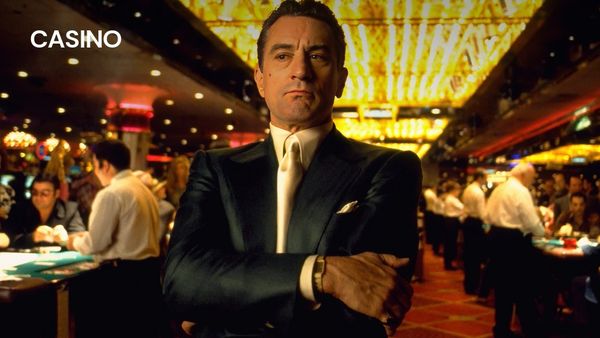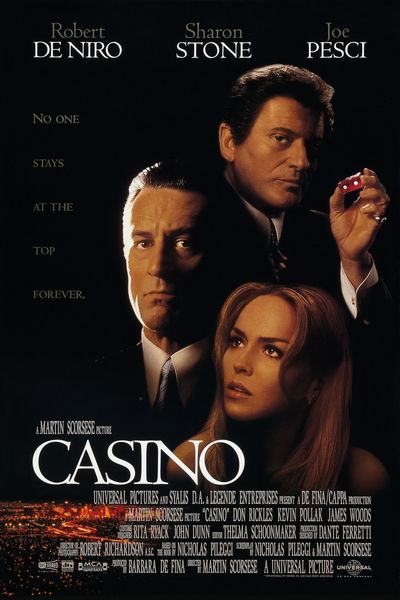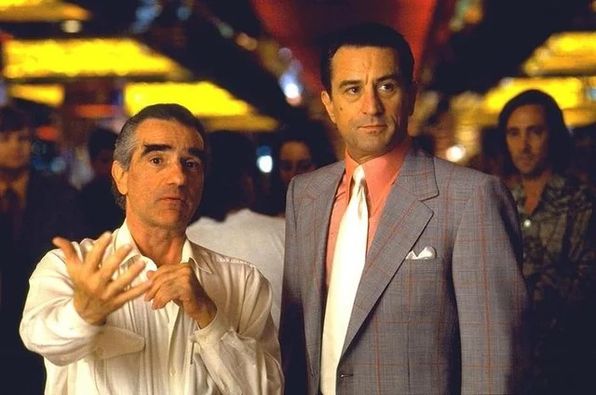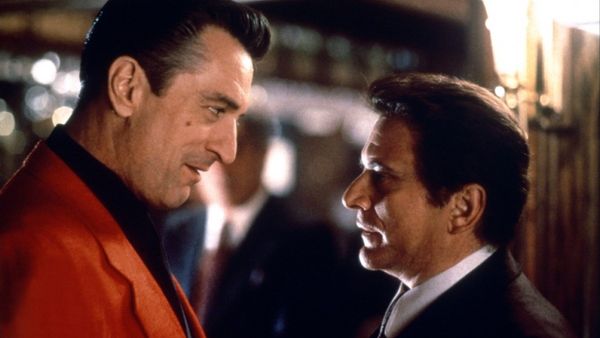Casino (1995)

Casino, directed by Martin Scorsese and released in 1995, is a gripping crime drama that delves into the seedy world of Las Vegas in the 1970s and 1980s. Based on the non-fiction book Casino: Love and Honor in Las Vegas by Nicholas Pileggi, who co-wrote the screenplay with Scorsese, the film stars Robert De Niro, Sharon Stone, and Joe Pesci, offering a powerful exploration of ambition, corruption, and the dark underbelly of the American Dream.
The story follows Sam “Ace” Rothstein (Robert De Niro), a skilled sports handicapper who is sent to Las Vegas to oversee the operations of the Tangiers Casino. With connections to the Mafia, Sam is tasked with ensuring that the casino runs smoothly and profitably. His meticulous attention to detail and ability to manipulate the odds make him a valuable asset, but as he rises to power, he becomes embroiled in the dangerous world of organized crime.

The narrative is further complicated by the arrival of Nicky Santoro (Joe Pesci), a volatile mob enforcer who becomes Sam’s best friend. Nicky’s ruthless approach to problem-solving and his penchant for violence create a stark contrast to Sam’s more calculated demeanor. As Nicky’s behavior spirals out of control, it puts both their lives and the casino at risk, illustrating the fragile nature of their partnership.

At the heart of the film is the tumultuous relationship between Sam and Ginger McKenna (Sharon Stone), a beautiful but troubled hustler who becomes Sam’s wife. Ginger’s character is complex; she is both alluring and manipulative, embodying the seductive power of Las Vegas while also revealing the emptiness that often accompanies it. Stone’s performance earned her an Academy Award nomination, and her character’s struggles with loyalty and addiction serve as a poignant commentary on the destructive nature of ambition and desire.

Scorsese’s direction is masterful, employing his signature style to create a vibrant yet gritty portrayal of Las Vegas. The film is renowned for its stunning cinematography, dynamic editing, and an eclectic soundtrack that features iconic songs from the era. Scorsese’s use of voiceover narration, particularly from De Niro’s character, adds depth to the storytelling, providing insight into the characters’ motivations and the moral complexities of their choices.

The film’s exploration of themes such as greed, power, and betrayal is underscored by its unflinching depiction of violence and corruption. As the narrative unfolds, it becomes clear that the pursuit of wealth and success can lead to disastrous consequences, ultimately culminating in a tragic downfall for many of the characters involved. This moral ambiguity is a hallmark of Scorsese’s work, inviting viewers to question the nature of loyalty and the cost of ambition.
Casino received critical acclaim upon its release, praised for its powerful performances and intricate storytelling. It was a commercial success and has since become a classic in the crime drama genre. The film’s impact is evident in its portrayal of the Las Vegas landscape, which has influenced numerous films and television shows about the world of gambling and organized crime.
In conclusion, Casino is a compelling and visually stunning exploration of the darker side of the American Dream. Through its captivating characters, masterful direction, and intricate storytelling, the film serves as a cautionary tale about the seductive allure of power and wealth. As Sam, Nicky, and Ginger navigate the treacherous waters of ambition and betrayal, audiences are left with a profound understanding of the consequences that accompany the pursuit of success in a world defined by greed and corruption.











